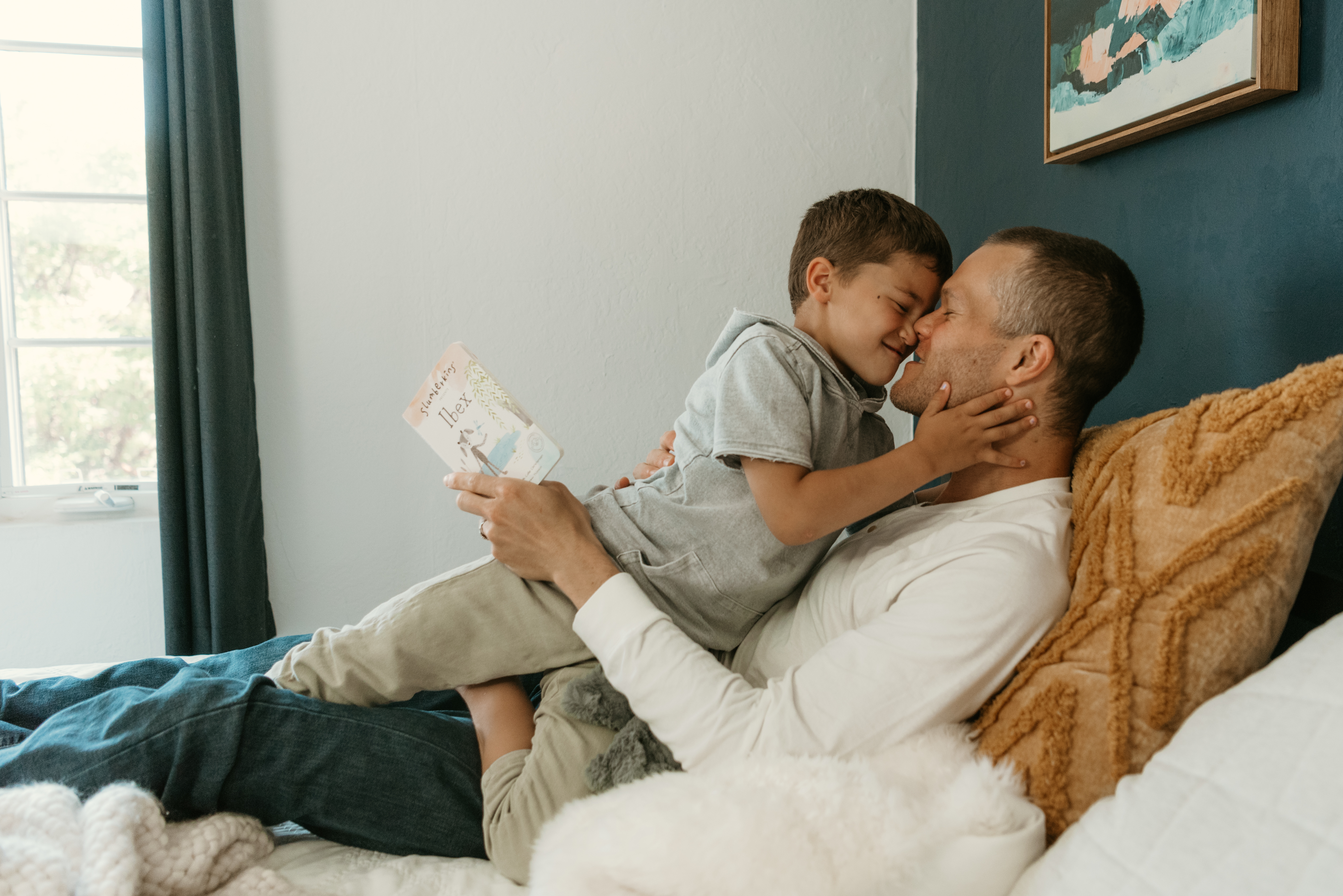Emotional Courage is about noticing and expressing your own feelings, and listening to others’ emotional expression, even when that’s hard to do. It stands in contrast to the old “tough guy” model, emerging as a new path for parents and burgeoning leaders in the community.
This kind of courage is not one of fake toughness, posturing or making empty statements about one’s own greatness. It’s the kind of courage that is soft and strong at the same time. It’s the kind that opens our hearts instead of shutting them. Emotional Courage is something we carry deep within us that helps us notice and embrace our tougher feelings. It’s about finding resilience through hard things and embracing tough conversations. For many of us, it’s a new type of courage to learn about. It is a courage that we grow from deep inside, one that we can practice and develop and allows us to be tough, open and loving, all at the same time.
When children learn Emotional Courage from a young age they will carry this learning into any role they take on as an adult. From being a world leader to being a leader of self, we all can benefit from exploring how to show up and do the right thing, even when it’s hard.
The ability to access Emotional Courage can lead to these positive outcomes:
- Tolerating distressing and uncomfortable feelings (like sadness and guilt) without the need to avoid, numb feelings, or blame others
- Regulating emotions and learning from emotional states
- Asking for help when needed
- Feeling okay with not having all the answers
- Having conversations that may be uncomfortable but are necessary
- The inner strength to stand up for what you know is right
- The strength and ability to intervene when witnessing injustice
- Listening and empathizing with others
- Cooperating with others and processing take-in of new information
- Accessing resilience, even through adversity
Emotional Courage is one of those things that we cannot just “tell” our children about, we have to show it. The way we relate to emotions, the things we value, and don’t value, the things we respond to and don’t respond to are oftentimes unspoken “rules” in a family that everyone understands on some level including children. This is why parents must be the ones to do the work first to make sure that children can learn from us as models of behaviors and qualities we hope to grow in our children. Here are some steps to help you get started if you are interested in building Emotional Courage in your family:
7 Steps to Practice and Model Emotional Courage:
- Notice your Feelings: The first and most important step for emotional courage is first to notice what you are feeling. If you can face your own feelings, even the really really strong ones, then you can do anything!
- Accept all your Feelings: We cannot move through a place of courage and bravery, without acknowledging what is challenging us. It is brave to notice your feelings and accept them. Only once we accept what is, can we move through it, to a new place.
- Let go of Perfection: People aren’t perfect. We all have challenges, we all make mistakes, and we ALL have big feelings. When we let go of being “perfect” it allows us to notice how things are and what we need to do from here.
- Listen to Others: Listening is a real strength. Sometimes we get caught in our own heads and our own feelings, but if we take a moment to peek out with curiosity, we can learn from others, and take in information that can be really helpful to us. Listening to others’ thoughts and feelings can help us grow.
- Get Clear on What is Important to You: Listen deeply to yourself. You may have fears and worries about something but listen to that deeper voice that knows what is right for you. Your inner wisdom will show up for you if you listen in.
- Face Challenges: Sometimes a call to Emotional Courage requires action. It could be that you need to stand up for yourself or advocate for others. Make a plan and follow through!
- Ask for Help: One of the most courageous things people can do is ask for help when they need it – and we all need it sometimes. Reach out to your friends, family, or a professional. We don’t have to have all the answers.
If the idea of emotions as “strong” was not one you grew up with, these steps may be harder than they seem. Oftentimes we have part of us that believes one thing, and another part that remembers the old messaging that we grew up with. It can take some time and practice to truly master these steps. Maybe just pick one to start with. If you struggle with perfectionism, or with asking others for help -start there. Practice these steps in front of your children. Let them in on your process. Emotional Courage is not a destination, it’s a journey. It’s not something we can just arrive at, it’s a constant process we can engage to listen deeply to ourselves and others, and a conscious choice to value empathy and love over toughness and power. The latest resources from Slumberkins model a new ‘strong’, giving parents and caregivers tools to help children understand that feeling deeply is a gift to be encouraged and embraced. A gift that guides us all.


